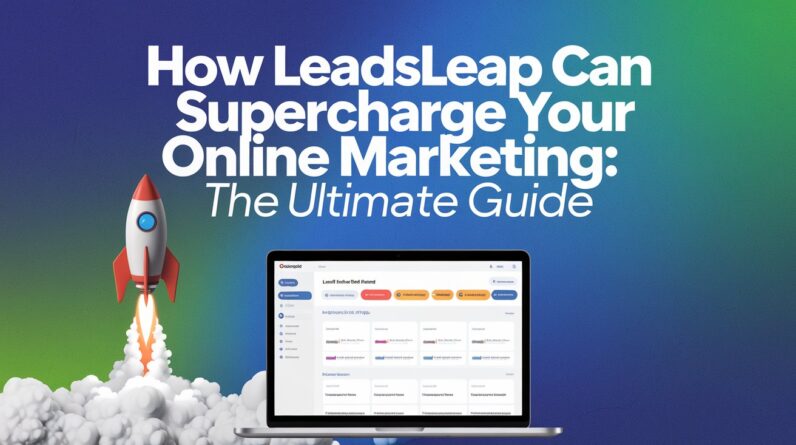Affiliate marketing and info product creation are two of the most popular ways to generate income online. While both offer the potential for significant revenue, they operate in very different ways.
Understanding the advantages and challenges of each will help you decide which is the better fit for your goals. Affiliate marketing is the process of promoting other people’s products and earning a commission for each sale or lead generated through your referral link.
You don’t need to create a product yourself; you simply recommend products to your audience. The key to success in affiliate marketing is finding high-quality products that align with your niche and audience.
Once you’ve chosen the products you want to promote, you create content around them, such as blog posts, reviews, email campaigns, or social media posts, that encourage people to click on your affiliate links.
One of the main advantages of affiliate marketing is the low barrier to entry. You don’t need to invest time and resources into product development, customer support, or order fulfillment.
All of that is handled by the company whose products you’re promoting. This makes affiliate marketing a great choice if you want to start making money online quickly without creating something from scratch. You can join an affiliate program, promote the product, and start earning commissions relatively fast.
Affiliate marketing also allows you to diversify your income streams. Since you’re not tied to a single product or brand, you can promote multiple products across various categories.
This helps spread the risk because if one product stops converting or becomes less relevant, you have others to fall back on. It also means you can test different products and see which ones resonate most with your audience.
However, affiliate marketing has its downsides. Your earnings are entirely dependent on the commissions you receive from the companies you promote. Commission rates can vary widely depending on the program, and in some cases, they can be quite low.
For example, some affiliate programs offer commissions as low as 1% or 2%, which means you need a high volume of traffic to generate significant income. Higher-ticket items and programs with recurring commissions are more profitable, but they’re also more competitive.
Another challenge of affiliate marketing is that you don’t control the product, the pricing, or the customer experience. If the product you’re promoting suddenly changes its price, quality, or availability, you have no control over it.
Additionally, the customer isn’t yours. When someone buys through your affiliate link, they’re the customer of the company you’re promoting, not yours. This means you don’t have the opportunity to build a relationship with them or upsell other products directly to them.
Info product creation, on the other hand, involves creating your own digital products—like eBooks, online courses, membership sites, or printables—that you sell directly to your audience.
The biggest advantage of info product creation is the control you have over every aspect of the process. You decide what the product will be, how much it will cost, and how you’ll deliver it to customers. This gives you the ability to tailor your product to your audience’s specific needs and preferences, which can lead to higher conversions.
Because you own the product, you also keep 100% of the revenue (minus any platform fees or advertising costs). This can be significantly more profitable than affiliate marketing, especially if you’re selling high-ticket info products like in-depth courses or coaching programs.
Info product creation also allows you to build a direct relationship with your customers. Once someone buys from you, you have their contact information, which means you can follow up with them, offer support, and sell additional products or services.
Another benefit of info product creation is the potential for passive income. Once you’ve created your product, it can continue to generate sales with minimal ongoing effort. You can set up automated marketing funnels that drive traffic to your product page, process payments, and deliver the product without requiring your constant attention.
This makes info products a scalable business model. The more successful products you create, the more income streams you build, and the more you can grow your business over time.
However, info product creation comes with its own set of challenges. Creating a high-quality product takes time, effort, and expertise. You need to understand your audience’s pain points, develop a solution that meets their needs, and present it in a way that’s easy to consume and valuable.
This process can take weeks or even months, depending on the complexity of the product. If you’re creating an online course, for example, you’ll need to outline the course, create video lessons, design worksheets, and set up a delivery system.
You’ll also need to handle customer service. When people buy your product, they expect support if they run into issues or have questions. This can be time-consuming, especially if your product has a large number of customers.
You may need to set up systems for handling refunds, answering questions, and managing feedback. Additionally, marketing your product is entirely up to you. Unlike affiliate marketing, where you’re promoting an established brand or product, info product creation requires you to build awareness and trust for your own brand.
Choosing between affiliate marketing and info product creation depends on your goals and resources. If you’re looking for a quick way to start earning money without creating something from scratch, affiliate marketing might be the better option.
You can leverage other companies’ products, focus on driving traffic to your affiliate links, and earn commissions without the responsibility of product creation or customer service.
On the other hand, if you’re willing to invest the time and effort into creating your own products, info product creation offers greater control, higher profit margins, and the ability to build a direct relationship with your customers.
It’s a more hands-on approach, but it also has the potential for more significant long-term rewards. In some cases, combining both strategies can be the most effective approach.
You can start with affiliate marketing to build an audience and generate income while you work on creating your own info products. Once your info product is ready, you can offer it to your existing audience and continue promoting affiliate products alongside it.
This allows you to diversify your income streams while building a sustainable online business. Ultimately, both affiliate marketing and info product creation can be highly lucrative.
The key is understanding the strengths and weaknesses of each and deciding which one aligns with your business model and long-term goals. Whether you choose one or a combination of both, success comes down to knowing your audience, providing value, and staying consistent in your efforts.







